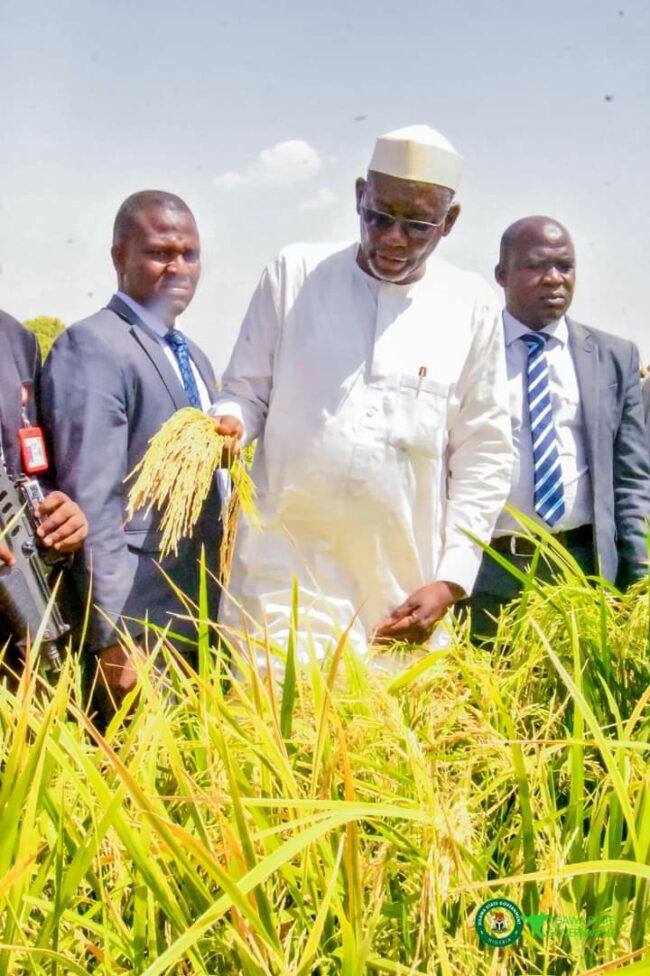Governor Umar Namadi of Jigawa State says his administration has succeeded in supporting farmers to cultivate over 200,000 hectares of rice this dry Season and expected to harvest over 800,000 metric tones.
He made the declaration while inspecting some rice farms along Hadejia Valley in Ringim, Taura, Auyo and Hadejia local government areas of the state.
According to him, agriculture is one of the key sector of his 12- point agenda and it will be used for poverty eradication, job creation, food security, building local resilience and sustainable economic development.
The Governor explained that, the farmers were supported with various farm inputs at subsidized prices, as well as soft loans which enable them to cultivate the large farm lands.
He pointed out that, the farmers’ targeted is to produce 800,000 metric tones this dry season and also hope to produce similar volume in the upcoming raining season.
He noted that, the state will produce 1,600,000 metric tones which is equivalent to 27 percent of the annual rice needed in Nigeria.
Namadi however told the farmers that his government is aware of the high cost of fuel which negatively affects their cost of production, promising to collaborate with the federal government to get subsidized fuel for them.
He also promised to source Solar Powered Water Pump Generators at a subsidized price to the farmers in order to reduce their cost of production and increase their profit.
The Governor commended the farmers for demonstrating their commitment to their business which he described as encouraging.
Speaking on behalf of the farmers, Alhaji Dauda Ali Kura explained that their major problem this dry season farming was high cost of fuel.
He disclosed that he alone spends over 1 million naira on fuel weekly.
Kura called on the Governor to provide them with alternatives to enable them remain in the farming business.




